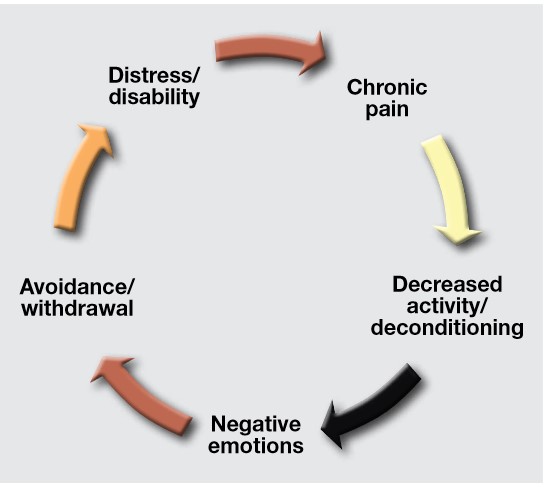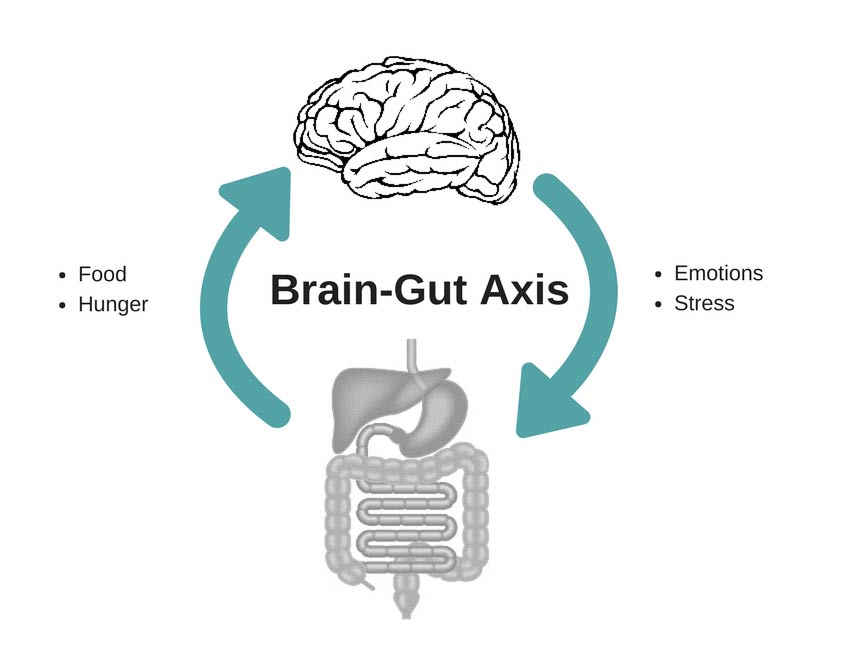Chronic Pain
I’m a CBT specialist with experience helping people with Chronic Pain. Cognitive Behavioural Therapy (CBT) is the best practice counselling approach for chronic pain – https://pubmed.ncbi.nlm.nih.gov/10204712/
CBT is a short-term, goal focused, empowering approach. In a way, it is therapy for people who “don’t need therapy”. I combine CBT with DBT skills and other counselling as needed.

Pain can impact all aspects of our lives including our body, emotions, thoughts and behaviours. Each individual experiences pain in a unique way. My main goal is to look at all aspects and increase your quality of life.

My Approach
- First off, I want to get to know you and learn how pain impacts your life and how you currently manage it.
- You will learn and use CBT techniques to identify and change any thoughts, feelings or behaviours that might be making things worse.
- You will learn new coping skills to see what helps – relaxation techniques, body scans, grounding exercises, and mindfulness skills.
- We will discuss moderation of activities, and finding more activities that you enjoy.
- We can discuss communication with loved ones about pain and feelings.
- We can also discuss meaning, purpose and hope.
CBT can help people with Chronic Pain, Fibromyalgia, Arthritis Pain, Chronic Fatigue etc. As well, it is a best practice therapy approach for other things that might be affecting you such as – anxiety, depression, anger, chronic insomnia, IBS, worry and stress.
I can co-ordinate with your physician, WSIB case worker, insurance company, physiotherapist, occupational therapist, massage therapist, psychologist etc. Ask them for a referral to me.
IBS
IBS is a disorder of gut brain interaction. While there are physical triggers and physical results to your gastrointestinal tract (GI), there are also emotional and stress reactions to symptoms.
“The GI tract is highly susceptible to the effects of stress, and stress is a significant contributor to brain–gut dysregulation in IBS. Research has shown that stress is associated with the onset of IBS and with more severe symptoms. “
https://www.ncbi.nlm.nih.gov/pmc/articles/PMC5530860/

Hypervigilance can make things worse. The fear of bowel movements can make things worse. You might worry about eating or being in public or working where bathrooms aren’t easily available.
“Cognitive-behavioral therapy (CBT) has been tested most rigorously in multiple randomized controlled trials and consistently demonstrates significant and durable effects on IBS symptoms and quality of life. “ https://www.ncbi.nlm.nih.gov/pmc/articles/PMC5530860/
My therapy approach for IBS begins with getting to know you, understanding and supporting you. We then engage in the therapy below
- Discussion of body symptoms
- Discussion of psychological symptoms – how IBS affects your life
- Relaxation Techniques – to calm your body and mind
- Cognitive Restructuring – looking at negative or catastrophizing thoughts and their effect on symptoms.
- Coping Skills –for self-management
- Exposure Therapy – to gradually decrease fear and anxiety
I want to help you improve your quality of life.
Feel free to book a free 30 minute consult to meet me, tell me what you are looking for support with, and to ask me any questions.